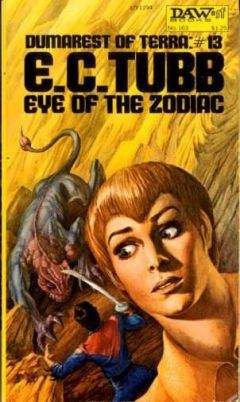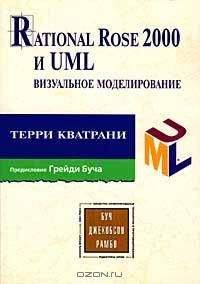"And comes cheap?"
She shrugged, quivers manifest beneath the thin material of her blouse, the breasts, unbound, moving like oiled balloons.
"I give him food and a place to sleep. I had a man once, but he wanted more than I was willing to give. Now I operate alone." Pausing she added, deliberately, "Maybe, if he had looked like you things would have been different."
Dumarest smiled at the compliment.
"Well, that's the way it goes," she said. "You looking for something?"
"A healer."
"You sick?" She shrugged again as he made no answer. "Try Bic Wan, he's two rows over, three stalls down. Not the cheapest, but you can trust his goods. Tell him Ayantel sent you, he'll treat you fair."
He was a small man, wizened, his eyes like jewels in the meshed contours of his face. A round hat hugged his skull and his hands were thin, the fingers long, the nails sharpened to points. He sat behind a display of vials and containers of tablets and pills. Bunches of dried herbs hung beside clusters of seeds, withered fruits, strands of sun-dried kelp. A skull bore a tracery of lines, hollow sockets staring at the crowd. Metal chimes made small tinklings in the rising breeze.
"Ayantel," he said. "A fine woman with a shrewd mind and a discerning eye. She guided you well. What are your needs?" He blinked as Dumarest told him. "The salve I can supply, the bone mender also, together with a syringe. But the other? My friend, what you ask is not easy."
Dumarest produced coins, let them fall from one hand to the other.
"A compound to erase the barrier between truth and falsehood-how often have husbands asked for the same? Deluded men and suspicious women, eager to quell their fears or discover their rivals. If I had such a thing my fortune would be made."
"Then you can't help me?"
"My friend, I am honest with you. I could give you what seems to do as you wish, but the resultant babble would be meaningless, the product of hallucination. You wish advice?"
"I am always willing to learn."
"A wise man, and a humble one. That is well. Many would throw it back in my face and therefore compound their stupidity. There are means to induce sleep and, when used, there is a period during which questions may be asked and will be answered. It will not last long and the drug can only be used once. There are better methods, but they are the prerogative of the authorities. I am only a poor man, a seller of salves and healing compounds, what would I know of such things?" His shrug, his gesture, were timeless.
"Give me what you can," said Dumarest.
He turned as the old man busied himself with items taken from beneath his counter. The market was growing busy, the scattered wanderers reenforced by workers from the field, others on leave from the site. Locals too, gaily dressed men and girls seeking recreation. From one side came the steady beating of a drum, the wail of a flute, a troupe of dancers spinning, flesh glowing in the multicolored illumination. Cunningly they stooped to pick up thrown coins, each gesture a titivation.
Life, brash, gay, abandoned, ruled the market square. It would grow to a crescendo, peaking at midnight when the stalls closed, the revelers wending their way home, others moving on to more decadent pursuits.
Against them, the monk stood like a faded statue in somber brown.
* * * * *
He stood before the exchange, an ornate building facing the square in which fortunes were made and lost, merchants gambling on cargoes which had yet to arrive. He was tall, thin. The face shielded by the cowl was emaciated with deprivation. A beggar without pride and having little success. The chipped bowl of plastic in his hand was empty. The sandals on his bare feet were scuffed, a strap broken and held together with twine. His voice was a droning murmur.
"Of your charity, brother, remember the poor."
Few looked, less lingered, none threw money into the bowl. A plump trader, his hands heavy with gems, his face oiled with good living, laughed as he flung a harlot a coin.
"That for your smile, Mayelle. Today I cleared a big profit. Tomorrow-who can tell?"
"Thank you, my lord." Deftly the coin was slipped beneath a gown slit to reveal glimpses of what lay beneath. "If a smile brought so much, then surely a kiss would bring more?"
"Don't tempt me, girl. I cannot afford the delay. Even while talking a fortune could be made."
"Brother," said the monk, "remember the poor."
"You remember them." The plump man was indifferent. "I'm too busy."
Brother Sayre made no comment, felt no anger at the cynicism. To have done so would have been to verge on the sin of pride, and that would have been a refutation of what he was and what he stood for. Pride and self-indulgence had no place in the Church of the Universal Brotherhood. Each monk shed all thought of personal comfort when he donned the plain, homespun robe, took the bowl of plastic, accepted the privation which would be his normal lot.
A hard life, but none who joined the Brotherhood expected otherwise. To stand, to beg, to give aid when aid could be given, to comfort always. To follow the creed of the Church, to extend the teaching which alone would end all hurt, all pain, all despair. No man is an island. All belong to the corpus humanitatis. The anguish of one is the torment of all. If all men could be brought to recognize one basic truth, to remember as they looked at another-there, but for the grace of God, go I-the millennium would have arrived.
"Of your charity, brother, remember the poor."
Halting before the monk Dumarest said, "Brother, I need your help."
"You are in distress?"
"No." Dumarest dropped coins in the bowl. He was generous, but both knew it was not a bribe. "I need information."
"There are places where answers may be found."
Taverns, shops, agencies, the field itself, the records, the complex which sold computer-time, the men who traded in nothing else. But each question would leave a trail, arouse curiosity, focus unwanted attention on him.
"There is a young man," said Dumarest. "A boy. Leon Harvey. I wondered if you know of him."
"Does he belong to the Church?"
"I don't know. Maybe."
"A casual?"
It was possible. A young man, on the run, lonely and perhaps afraid. The Church would have offered him comfort and more. The bread of forgiveness given to all who sat beneath the benediction light when, hypnotized, they eased their souls and suffered subjective penance. There were many who joined the queues for the sake of the wafer of concentrate. The monks regarded it as a fair exchange-food in return for the instilled conditioning which made it impossible to kill. The reason Dumarest had never sat beneath the light.
He said, "Leon is a runaway. He might have been reported and your aid sought."
"A boy, one of so many, how would we know of him?"
"You know, Brother. We both know."
By means of the hyper-radio incorporated into each benediction light. Monks were everywhere, tolerated and befriended by those in high places, in constant touch with the great seminary on Hope. And a parent, desperate, would have asked for help, or at least eased their hearts to listening ears. A small hope, but one which had to be followed.
Dumarest was not disappointed when, after a moment, the monk shook his head. "We have been asked to look for no one of that name. Where did he originate?"
"Nerth. You know it?"
"An odd name-no, I have no knowledge of any such world. The boy, of course, could be lying. You have considered the possibility?"
"Yes."
"Your name?"
Dumarest gave it, adding, "I am not unknown to the Church. If Brother Jerome was still alive he would vouch for me, but you can check the records."
"There is no need." The monk's eyes were direct. "As you say, you are known. If I could help you I would, but that does not seem possible. However, there is one thing perhaps you should know. Cyber Hsi has landed on Tradum."
Chapter Four
Manager Loh Nordkyn was disturbed. His reports had always been on time, work was progressing according to schedule, and the powers ruling the Zur-Sekulich had no reason for dissatisfaction, yet they had sent a cyber to Tradum.
He was housed in an upper suite of the company building, the windows giving a fine view of the town and space field, a view which meant nothing to Hsi as he sat at a desk studying the mass of data provided by the manager's aides.
He was tall, thin, robed as were the monks of the Universal Brotherhood, but there the similarity ended. He wore, not brown homespun, but scarlet fabric of fine weave, the Seal of the Cyclan prominent on his breast. His head was shaved, accentuating the skull-like appearance of the deep-set eyes, the skin drawn taut over bone. A living machine of flesh and bone and blood, all capacity for emotion eradicated by training and an operation performed during his youth, his only pleasure that of mental achievement.
A man who had dedicated his life to the pursuit of coldly logical reason. One to whom food was a tasteless fuel. A creature who could take a handful of facts and build a sequence of events from them culminating in a predicted eventuality.
He glanced up as the door opened, leaning back in his chair, his eyes watchful.
"Manager Nordkyn." The inclination of his head was perfunctory. "It is late. I had not thought to see you until tomorrow."
"I was curious," admitted the manager. "To to frank, I cannot understand why the company should have chosen to employ the services of the Cyclan. We have our own computers and the operation programs are proving successful."
"As yet, perhaps."
"A trend?" Nordkyn frowned. "I have run a complete series of analogues and have found nothing to pose any serious problems."
"And perhaps none will be found." Hsi touched the sheets before him, the reams of data, incidents, reports all compressed into symbolic language. "However, I notice that your progress per man-hour is falling."
"A seam of adamantine rock which delayed progress," said Nordkyn quickly. "It was anticipated and, now that we have penetrated it, lost time will be regained."
"Casualties seem to be high."
"Carelessness due to untrained labor. We are operating under a tight cost-schedule, as you must know. But is is unimportant, men are cheap." He added, incredulously, "Surely the Zur-Sekulich are not concerned over the loss of a few vagrants?"
"No."
"Then, with respect, I fail to see what you can achieve."
"You doubt the efficiency of the Cyclan?" Hsi's voice was a smoothly modulated monotone devoid of all irritant factors, yet Nordkyn was swift to refute the accusation.
"No! Of course not!"
"But you fail to see what can be gained by my advice." Hsi touched the sheets again, selected one. "Let me illustrate. Due to the price rise in basic staples, the food served at the canteens has fallen in terms of nutritional value to a factor of fifteen percent during the past eight weeks. This has resulted in a loss of physical energy and therefore, a lessening of productive effort put out by the workers. The financial gain is more than lost by reduced efficiency. If it is continued there will be an increase in accidents and deaths. There will also be a higher incidence of sickness and minor injury. Unless there is a change I predict that, within two months, you will be three and a half days behind schedule. This prediction is in the order of 89.6 percent of probability."
"I see." Nordkyn was thoughtful. "In that case you suggest-"





![Rick Page - Make Winning a Habit [с таблицами]](https://cdn.my-library.info/books/no-image-mybooks-club.jpg)